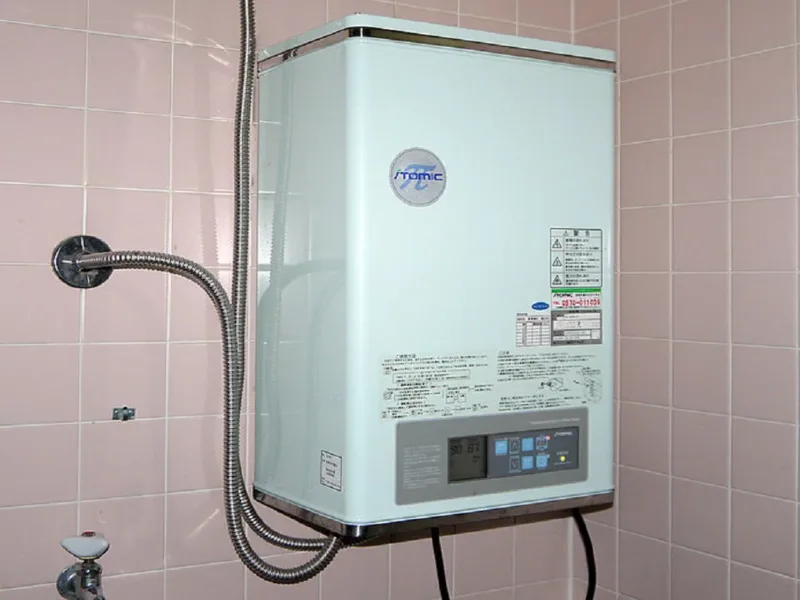Electric Hot Water Heater Not Working After Power Outage

Water Heater Not Working
Power outages are a normal occurrence. Usually, by themselves, they are no issue, but sometimes they bring with them some minor to major problems. Electric hot water heater not working after a power outage is one such problematic situation. Depending on what has gone wrong with the water heater, it could either be a minor thing or something as significant as a dead water heater.
Water Heater Takes Time To Heat Water
If you have used up all the hot water while the power was out, you have to give your water heater time to heat more water. It is not an instant heating device. Water heaters operating on gas take around half an hour to 40 mins to heat a tank full of water. An electric heater takes around twice as long. Even after the passage of this time if there is no hot water, you have cause for concern.
Check The Power Supply If Hot Water Not Working
The power is back up inside the home, but it’s entirely possible that the power supply to the water heater is still not through. There is a probability that after the outage, only partial power was restored and not complete due to some fault. Maybe your water heater is one of the affected appliances . Using a “circuit tester”, you can check whether your water heater is receiving power or not. If not, you need to figure out why. There are a couple of reasons that could be the cause. These are –
1. Tripped Circuit Breaker – Due to a surge in electricity, when the power came back on, the circuit breaker may have tripped. To rectify, you will have to push the tripped circuit breaker back to “On” position. Once that is done, your water heater should start functioning normally. However, if the circuit keeps tripping, it’s better to ask your local HVAC technician to come and have a look at the problem. Remember the circuit trips only when there is an overload. So, maybe you need to reaccess your electricals and wiring.
2. Cut Or Burnt Wires – While the power was out, a small animal or rodent could have chewed the wiring leading to the water heater. Similarly, the wire may have been cut by mistake or burnt due to overheating. Whatever be the case, the power came back on, but since the wires were damaged, the water heater could not function. You will need to figure out where the wires were cut, chewed or burnt and replace them. Since this job needs to be performed correctly due to its hazardous nature, let your plumber or electrician deal with it.
3. Faulty Switchboard – The fault could also lay in the switchboard from where the water heater is powered. Maybe the earthing is not proper, or it has a loose connection. If you have some basic idea of electricals, this is something you can check on your own. In case you have any misgivings, it’s best to call your electrician.
4. Plug Problems – Just like a faulty switchboard, the plug that connects the water heater to the power supply source too could have loose connections. Open the plug and tighten all wires. If any wire is hanging free, put it in its correct position and tighten the screws. Your water heater should be all set to take care of your household demands for hot water.
All the above are possibilities when the water heater is not receiving power. If, however, its power supply is on, you need to look at a few additional things such as –
1. Thermostat Malfunction – The thermostat of the water heater could have malfunctioned; the power outage was just an excuse. Try resetting the thermostat by first bringing it down to zero. Wait for a couple of minutes and take it to the desired temperature. Hopefully, your water heater not working after power outage should be resolved. If this does not work, the chances are that you may have to replace the thermostat itself. Call your local plumber, to check it out and replace it, if required.
2. Low/High Voltage – Your water heater needs a certain minimum voltage to operate. Most residential water heaters operate at 220/240 volts and some at 110/120 volts. If the voltage is less than the minimum or higher than the maximum, as a safety feature, it will shut down or not function. If your water heater is not getting adequate voltage, it is probably because there is a problem with the electrical system of your home. You need to get this checked immediately by a trusted and qualified electrician. Once the voltage is back to normal, your water heater will resume functioning on its own.
3. Burnt Heating Elements – Quite possibly, the heating elements of your water heater have all burnt out. This is usually a gradual process and happens as your water heater gets older. You can try replacing the burnt elements to extend the life of your aging water heater. To be honest, if your water heater is more than a decade old. it is recommended to buy a new one.
4. Tripped Reset Button – Another possibility is that your water heater’s reset button has tripped. A faulty thermostat, shorted heating element, and loose wiring may be the cause of this trip. Until you correct this trip your water heater will not work. This reset button is usually red in colour, and when it trips, it pops out. You have to push it back in.
Closing Thoughts If Electric Hot Water System Not Working
A power outage on its own will never harm a water heater. However, when the power comes back, a sudden voltage surge can fry the water heater. This will happen only if the circuit breaker does not work. It is thus essential to make sure that the electrical system of your home is reliable and trustworthy. Other than that, your local plumber or plumbing company should be able to take care of any water heater problems. Do not ever tinker with your water heater on your own. It is not a toy you can play with.
Frequently Asked Questions
The reset button on the electric water heater is easy to identify. It is a small red button found near the thermostat or behind a removable metal board under some insulation on the unit. Once you locate this button, press it and release it. Your electric water heater is now reset.
Water heating times tend to vary. Some heaters give hot water instantly (instant water heaters), and others can take anywhere between an hour to an hour and a half to give the desired result. Usually, water heating time depends on the type of heater, its location, the temperature of the water entering the heater, etc.
Typically, if the water heater suddenly loses power for no feasible reason, the reset button is used to turn it on back again. The reset button also acts as a safety mechanism by turning off the unit when the water becomes too hot.
The best way to prevent heat loss from the tank when there is a power outage is to wrap it up in a blanket. But before you do that, unplug it from the power source as when the power comes back on, the blanket might result in a fire.












